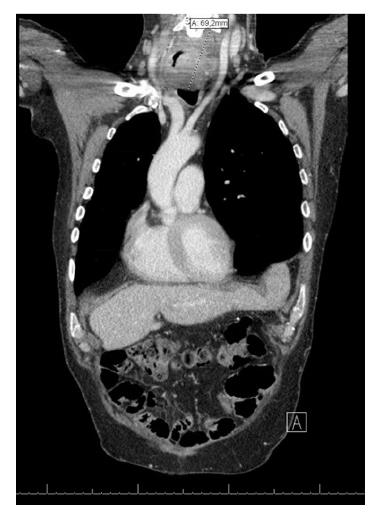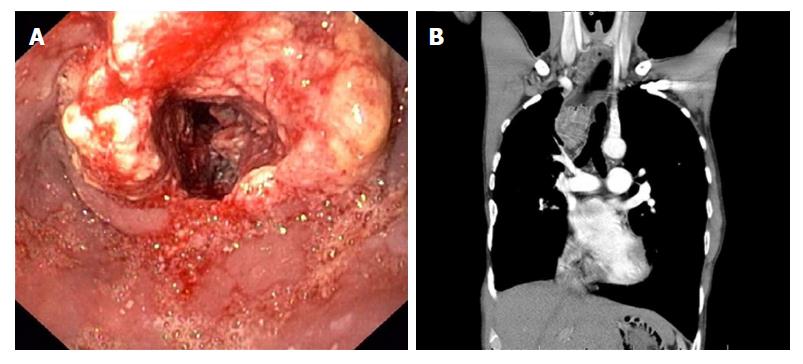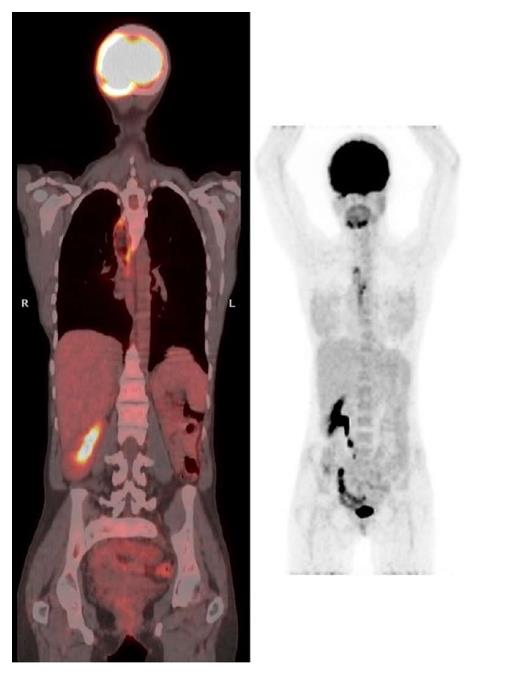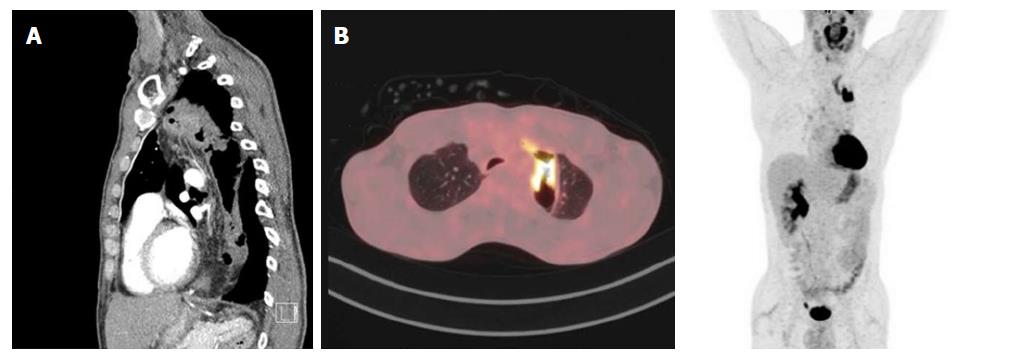Copyright
©The Author(s) 2018.
World J Gastroenterol. Mar 7, 2018; 24(9): 1056-1062
Published online Mar 7, 2018. doi: 10.3748/wjg.v24.i9.1056
Published online Mar 7, 2018. doi: 10.3748/wjg.v24.i9.1056
Figure 1 Chest computed tomography scan (CT scan) (case 1, tumor 2) demonstrating a tumor mass in the cervical native esophagus with suspected tumor invasion in the left thyroid gland.
Figure 2 Findings at upper endoscopy and chest computed tomography scan (CT scan) (case 2).
A: Upper endoscopy revealing a stenotic ulcerative tumor in the proximal esophagus, 22-29 cm from incisors. Histological examination of esophageal biopsies confirmed the diagnosis esophageal squamous cell carcinoma. B: Chest CT scan showing a tumor mass in the proximal esophagus with suspected tumor invasion in the trachea.
Figure 3 Initial findings at positron emission tomography-computed tomography scan (PET-CT scan) (case 3), showing PET-positive lesion in the distal esophagus without metastasis.
Figure 4 Initial findings at positron emission tomography-computed tomography scan (PET-CT scan) (case 4).
A: Chest CT scan image with a circumferential wall thickening of the thoracic colonic interposition over a length of 10 cm, not clearly separated from the thyroid and left brachiocephalic vein. Locoregional suspected lymph nodes (< 1 cm). B: PET-CT scan showing a PET-positive lesion in the thoracic colonic interposition. No PET-positive lesions or lymph nodes.
- Citation: Vergouwe FW, Gottrand M, Wijnhoven BP, IJsselstijn H, Piessen G, Bruno MJ, Wijnen RM, Spaander MC. Four cancer cases after esophageal atresia repair: Time to start screening the upper gastrointestinal tract. World J Gastroenterol 2018; 24(9): 1056-1062
- URL: https://www.wjgnet.com/1007-9327/full/v24/i9/1056.htm
- DOI: https://dx.doi.org/10.3748/wjg.v24.i9.1056












